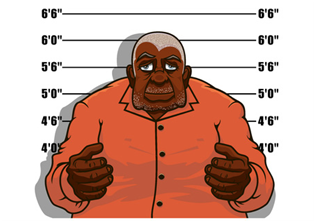1. Appearing in court with a Legal Aid lawyer achieves each of theprinciples of justice. Access to a lawyerandbeing legally represented is fair and equal.
2. The presiding judge in a criminal trial favouring one party over the other party does not achieve fairness and equality as it is not fair and not equal for a judge to favour one party over the other party.
3. Appealing a Supreme Court (trial division) decision to the Court of Appeal achieves fairness as a decision can be reviewed by a higher court if a party is not happy with the original outcome of their case. This also achieves access to a higher court and allows for equality in cases.

4. During a criminal trial the accused is given more time than the prosecution to
present their case can be considered to achieve fairness for the accused in getting sufficient time to present their case.
5. Receiving a fine for a parking infringement achieves equality as allindividuals who do this will receive a fine, and achieves fairness by punishing those who commit a parking infringement.
6. A judge and jury of 12 people determining a manslaughter trial achieves fairness to have a trial by your peers, and aims to ensure all are treated equally.
7. Imposing imprisonment as a sanction for committing a crime is fair depending on the crime committed, and achieves equality as this would be equal for anyone who commits a crime where imprisonment is considered an appropriate sanction.
8. An accused person not having the right to silence does not achieve fairness or equality as it is fair and equal under the law for an accused person to have the right to silence.
